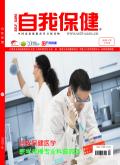Special Issue of Fountain House Mental Health Clubhouses as Hybrid Self-Help Organizations
引用次数: 5
Abstract
This special issue introduces researchers, practitioners, and the public to the self-help and mutual aid aspects of Fountain House mental health Clubhouses. These articles explore beyond the frameworks of the older conventional concepts of psychosocial rehabilitation; instead, they focus on newer emerging concepts of mutual aid, peer support, empowerment, and recovery. Fountain House Clubhouses have been studied and reported in the scholarly literature separate from that of mental health consumer-run (or service-user-run) self-help organizations (CROs) as they have been seen as so disparate that they have little in common. This article proposes a conceptualization of Clubhouses and CROs as mental health organizations that focuses on their mutual aid features—on what they have in common as self-help organizations. The intention is to provide a bridge so that the two literatures can be brought together to enrich each other. But, before we build this bridge (“Conceptually Integrating Clubhouses with other Mental Health CROs” below), we need to Introduce this Special Issue. Fountain House New York, the original Fountain House, is profusely thanked and greatly appreciated for its generous role in the idea for this special issue and for providing support through hosting a symposium and a subsequent meeting for researchers to present and critique their papers on Clubhouses. Fountain House is clearly devoted to independent research as their hosting role came without any strings attached. Kudos and thank yous to the Guest Editor Magnus Karlsson whose coordination of the project brought it to fruition. He encouraged喷泉之家精神健康会所混合自助组织特刊
这期特刊向研究人员、从业人员和公众介绍泉之家心理健康会所的自助互助方面。这些文章超越了传统的社会心理康复概念的框架;相反,他们关注的是互助、同伴支持、赋权和康复等新兴概念。在学术文献中,喷泉屋俱乐部与心理健康消费者经营(或服务用户经营)自助组织(cro)分开进行了研究和报道,因为它们被认为是如此不同,以至于它们几乎没有共同点。这篇文章提出了一个概念,将俱乐部和cro作为精神健康组织,重点放在他们的互助特征上——他们作为自助组织的共同点。其目的是提供一座桥梁,使两种文献可以汇集在一起,相互丰富。但是,在我们建立这座桥梁之前(下文“从概念上整合会所与其他心理健康cro”),我们需要介绍这一期特刊。喷泉之家纽约,最初的喷泉之家,非常感谢它在本期特刊的创意中所扮演的慷慨角色,并通过举办研讨会和随后的会议为研究人员提供支持,以展示和评论他们关于俱乐部的论文。喷泉屋显然致力于独立研究,因为他们的主持角色没有任何附加条件。感谢客座编辑Magnus Karlsson,他的协调使这个项目取得了成果。他鼓励
本文章由计算机程序翻译,如有差异,请以英文原文为准。
求助全文
约1分钟内获得全文
求助全文

 求助内容:
求助内容: 应助结果提醒方式:
应助结果提醒方式:


